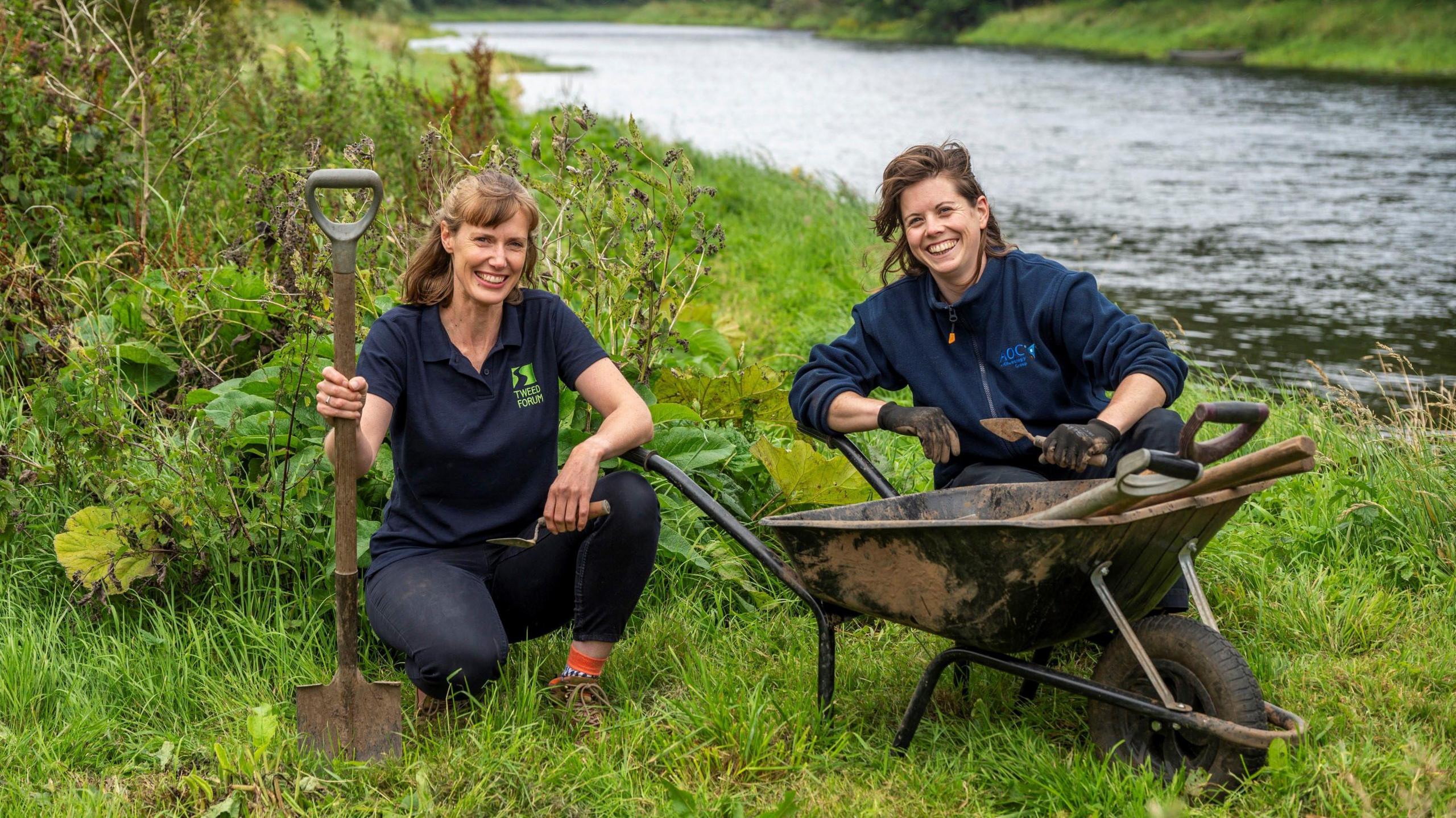School pupils help to monitor River Tweed's health
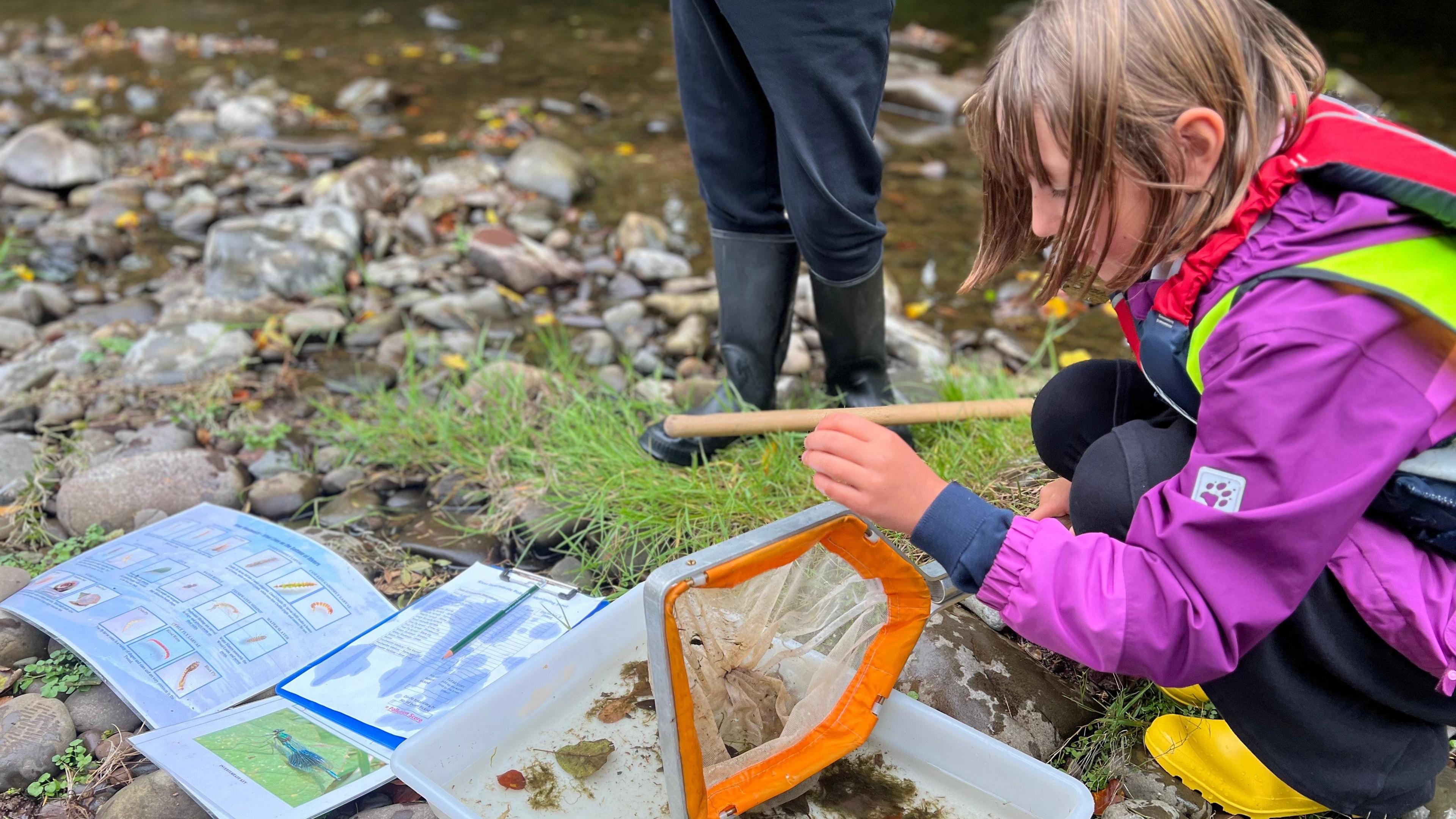
Water scarcity levels have been high across Scotland for much of the summer
- Published
After a summer of high water scarcity across the Scottish Borders, pupils at one primary school in the region have been helping to check on the health of the River Tweed.
Earlston Primary pupils have been working with the Tweed Foundation as part of a UK-wide survey.
This summer the River Tweed and its tributaries faced record levels of water scarcity – being set at the highest level for most of the summer months.
Restrictions on water extraction for businesses and farms were put in place by the Scottish Environment Protection Agency, which were only fully lifted in the last week following consecutive days of continuous rainfall.
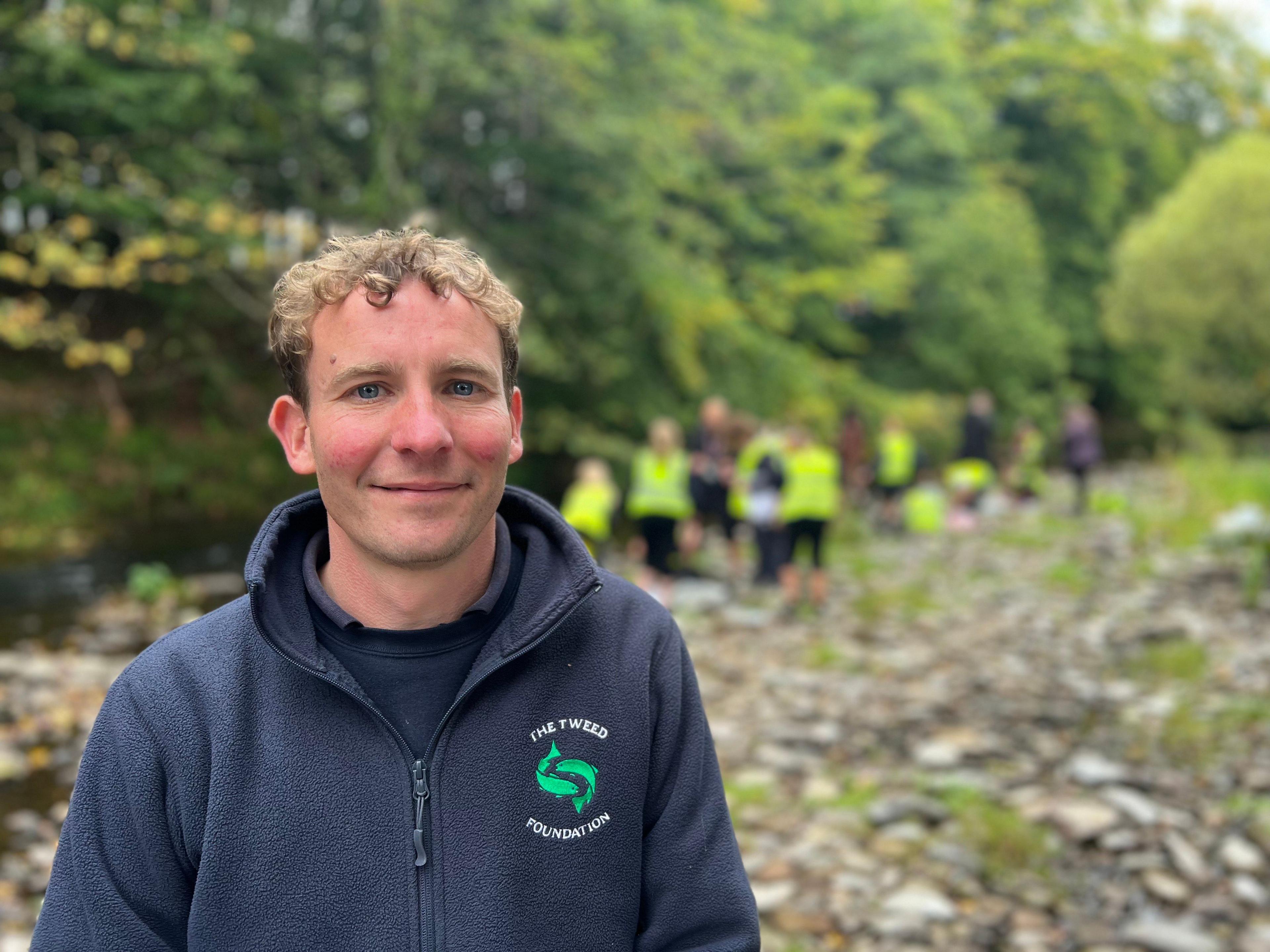
Ben McCallum said the work of the Tweed Foundation was even more important at times of "extra challenges"
Now they have been lifted, the Tweed Foundation – the body in charge of the protection and improvement of the river's salmon, sea trout and other fresh water fish – is keen to get young people involved and interested in the health of the region's rivers.
Ben McCallum is its education officer and he took the Earlston children down to the Leader Water - a tributary of the Tweed.
"I think in times like these when rivers do face extra challenges it makes our work even more important," he said.
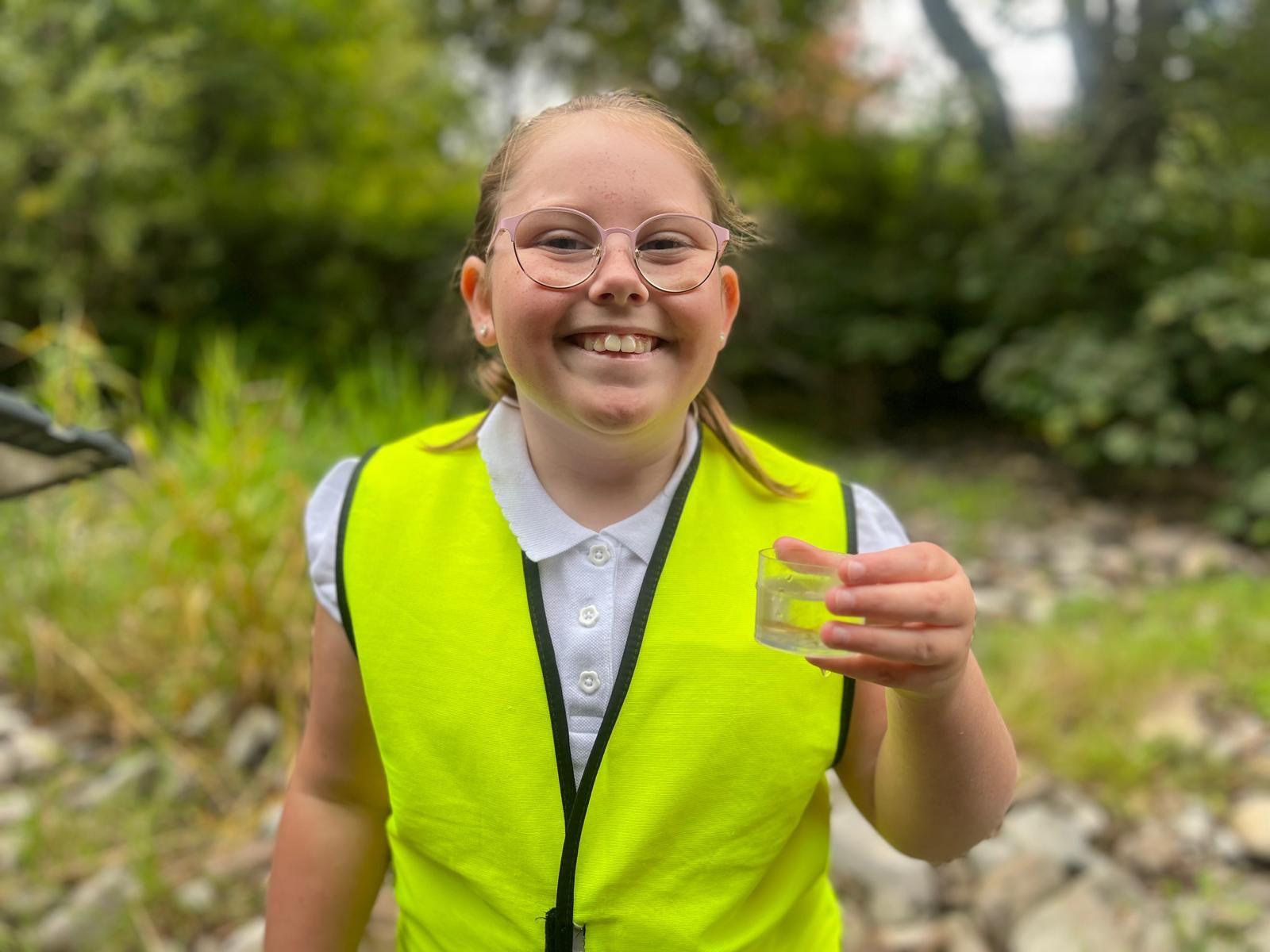
The project is part of a UK-wide survey of river health
The children were given the opportunity to get in the river, collect samples and record what they found – while also learning about the wildlife that lives in the Borders' largest river system and how to keep it clean and healthy.
Their findings will become a part of the UK-wide Big River Watch.
It is a week-long citizen science survey, where people take part in similar activities to help gather a snapshot of river health across the country.
Ben added: "When we can take part in things like the Big River Watch it showcases to the children that there are people right across the country invested in caring for our rivers."
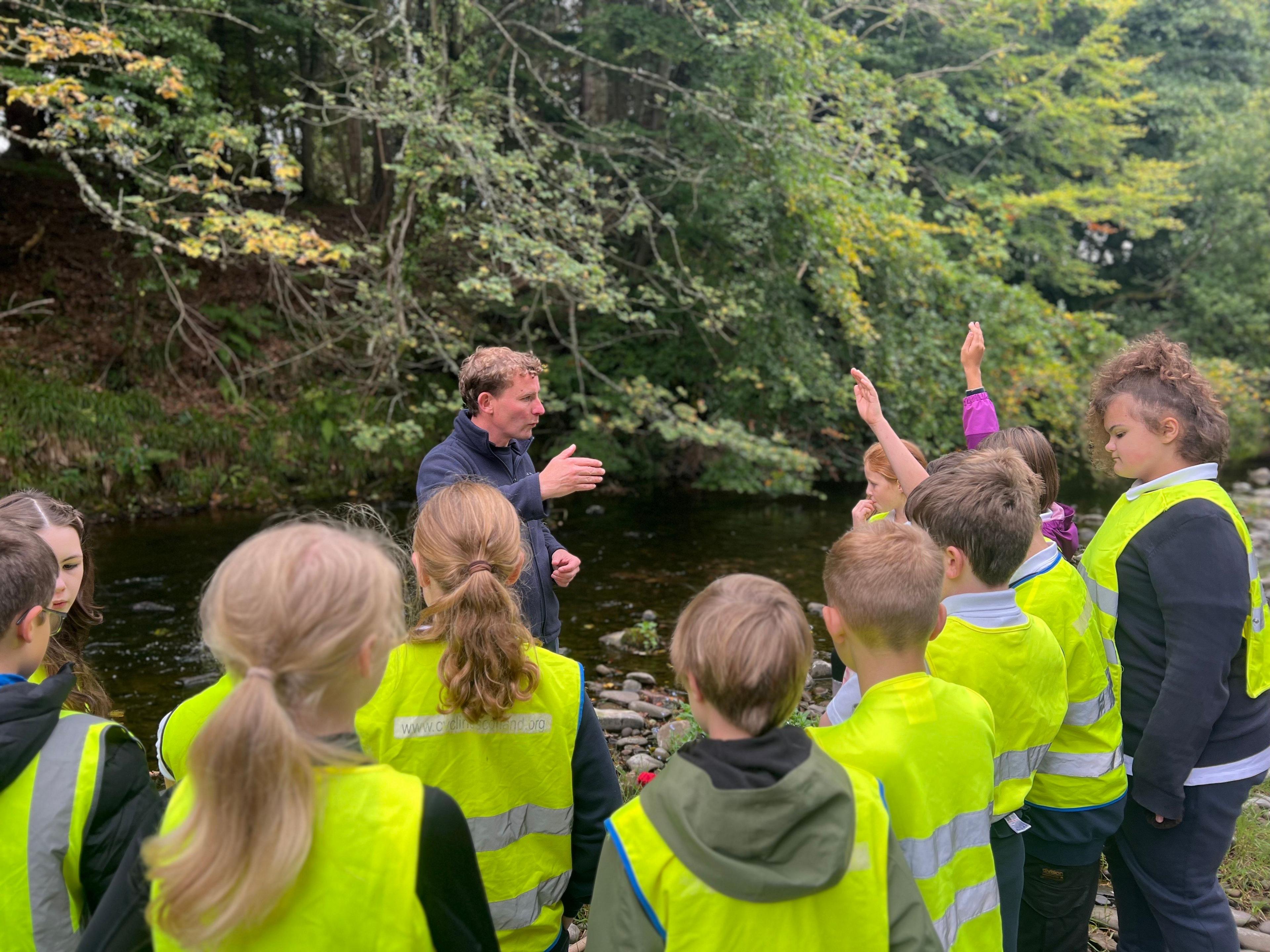
The children's findings will be fed back into the Big River Watch study
The importance of the health of the River Tweed was not lost on the primary pupils.
"We want the water to be clean so that the fish can swim into the River Tweed," one of them told the BBC.
The data that the children will contribute will help track the effects of extreme weather on larger river systems, like the water scarcity the region faced throughout summer.
If the project is about inspiring the next generation to look after the Tweed, it appears to be working.
"This is the highlight of my day, maybe even my week," said one pupil.
Related topics
- Published8 October 2024
